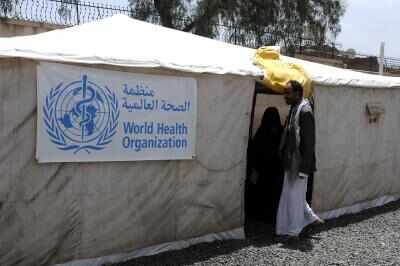New Delhi, 13 September (IANS). According to a new report released on Saturday by the World Health Organization (WHO), cholera remains a major problem for the whole world. In 2025, 31 countries are facing outbreaks.
The report states that despite the treatment being available, the deaths from the disease have increased by 50 percent in 2024 compared to 2023. The second consecutive year, more than 6000 people died due to the disease, while its cases have increased by 5 percent.
The report said that these figures are worrisome, but reduce the actual burden of cholera.
Cholera Vibrio is a disease caused by a bacterium called cholera, which spreads rapidly through stool-contaminated water.
The report of the World Health Organization states, “Struggle, climate change, population displacement and lack of water, hygiene and health infrastructure increase cholera cases.”
Cases increased in 2024 as compared to 2023. In 2024, cholera cases were reported in 60 countries with a rate of 45 in 2023.
Africa, Middle East and Asia continued to bear the global burden of the disease and 98 percent of the total cases were recorded in these countries.
The report said, “In 2024, the scope of cholera outbreak is continuously increasing, each of the 12 countries has more than 10,000 cases, out of which seven countries have increased on a large scale this year.”
It further stated, “To deal with cholera, governments, donors and communities have to ensure that people have safe water and hygiene facilities, they have accurate knowledge about their safety, and their quick access to treatment and vaccination when there is an outbreak. Strong monitoring and diagnosis will help give direction to these reactions. There is also a need for vaccination and investment.”
The World Health Organization included cholera’s new oral vacanne UVicol-S in its pre-usual list in the beginning of 2024.
Doing this helped maintain the average reserves level above the emergency limit of 50 million doses for the first 6 months of 2025.
However, due to the continuous high demand of the OCV, there was a temporary change in the single-khurka system.
In 2024, 6.1 million OCV doses were requested in the global reserves, and in 16 countries, a record 4 million doses for emergency use in single-khurak campaigns were approved. However, the WHO stated that in 2024 and 2025, the lack of supply remained more than the demand.
-IANS
KR/














